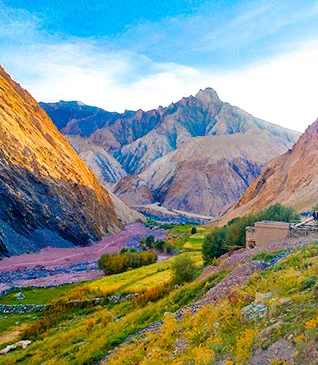In today's rapidly changing educational landscape, the importance of experiential learning in student development cannot be overstated. Experiential learning—where students gain knowledge and skills through direct experiences outside the traditional classroom setting—plays a crucial role in fostering critical thinking, problem-solving abilities, and personal growth. By engaging in hands-on activities, students can connect theoretical concepts to real-world applications, leading to a deeper understanding and retention of knowledge.
Trekking, in particular, stands out as a highly valuable form of experiential learning. This adventurous activity combines physical challenge with the exploration of natural environments, offering students a unique opportunity to develop both educational and personal growth.
The popularity of adventure-based learning programs has been steadily increasing as educators and parents recognize the myriad benefits these experiences offer. Schools and institutions are increasingly integrating such programs into their curricula, understanding that they provide an engaging and impactful way for students to learn and grow.
BENEFITS OF TREKKING FOR STUDENTS
Physical Benefits
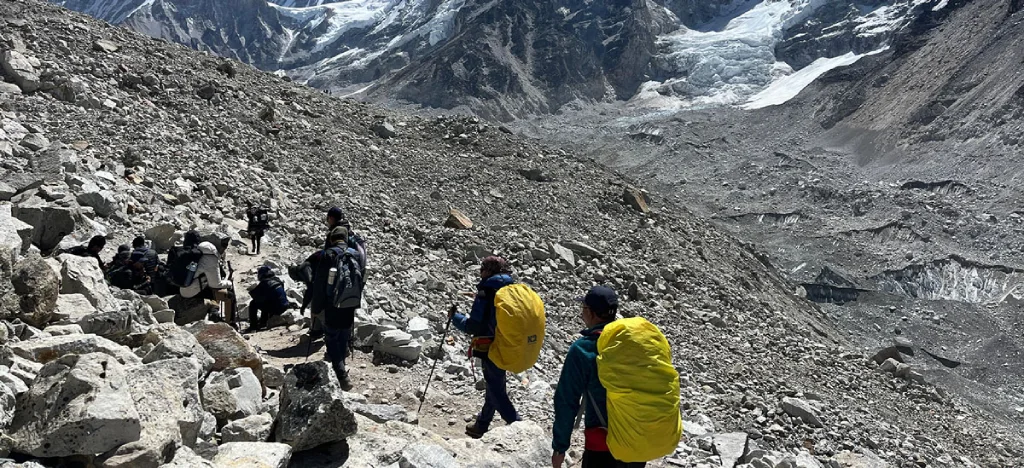
Trekking is an excellent way to improve overall physical fitness. The activity involves sustained walking over varied terrains, which boosts cardiovascular health by increasing heart rate and enhancing blood circulation. As trekkers navigate steep inclines and rugged paths, their muscles, particularly in the legs and core, are constantly engaged, leading to improved strength and endurance. The physical exertion required for trekking promotes a healthier lifestyle, encouraging students to stay active and fit.
Trekking in natural environments exposes students to fresh air and a variety of natural elements, which can help boost their immune system. Spending time outdoors increases the intake of oxygen, which is essential for overall health and well-being. Moreover, the exposure to diverse microbial life in nature can strengthen the body's immune responses.
Mental & Emotional Benefits
Trekking inherently involves overcoming obstacles and navigating unpredictable situations, both of which are crucial for building mental resilience. The demanding nature of trekking requires students to face and surmount various challenges, such as dealing with adverse weather conditions, finding their way through difficult terrain, or coping with physical fatigue. These experiences teach students to persevere, adapt, and maintain a positive attitude in the face of adversity.
Nature also has a profound calming effect on the mind. The serene environment, free from the constant noise and distractions of daily life, allows students to relax and rejuvenate. The rhythmic movement of walking, coupled with the natural beauty surrounding them, provides a meditative experience that helps clear the mind.
Further, the problem-solving skills gained from trekking can enhance students' performance in subjects that require critical thinking and analysis. These skills are also valuable in everyday life, helping students make informed decisions, manage time effectively, and handle unexpected challenges with confidence and composure.
Social and Interpersonal benefits
Trekking expeditions emphasize the importance of working together to achieve common goals. In the wilderness, students quickly realize that success and safety often depend on effective collaboration. This shared experience fosters a strong sense of camaraderie, as students must rely on one another for support, motivation, and practical help.
Trekking provides ample opportunities for students to take on leadership roles, enhancing their confidence and leadership skills. These roles can range from leading a hike to making critical decisions about the route or camp setup. By stepping into leadership positions, students learn to guide their peers, manage group dynamics, and take responsibility for the well-being of others.
Clear and effective communication is crucial in the wilderness, where misunderstandings can lead to serious consequences. Trekking expeditions teach students to articulate their needs, give clear instructions, and listen actively to their teammates. These communication skills are essential for ensuring the group's safety and success.
Personal Growth and Life Skills
Trekking in challenging environments pushes students to step out of their comfort zones, leading to significant personal growth. The demanding nature of trekking, with its physical and mental obstacles, encourages students to confront and overcome their fears and uncertainties. This process of facing and surmounting challenges helps students build resilience, self-confidence, and a greater sense of self-efficacy.
Trekking teaches students to manage personal responsibilities and make decisions independently. In the wilderness, they must take charge of their own well-being, from packing their gear to navigating trails and ensuring their own safety. This autonomy fosters a sense of independence and self-reliance, as students learn to trust their judgment and take initiative.
Trekking also fosters a lifelong love for the outdoors and invokes a sense of love for the environment. This experience is often transformative, instilling a commitment to sustainability and responsible environmental practices.
Improves Cognitive Function & Focus
 (1).webp)
Studies have shown that regular physical activity enhances brain function, leading to better concentration, memory, and problem-solving skills. Outdoor activities, in particular, have been linked to improved cognitive development in children and adolescents.
Students who participate in outdoor learning programs often perform better academically. The experiential nature of outdoor education helps students retain information more effectively and develop a deeper understanding of academic subjects.
By integrating practical learning opportunities with physical activity, trekking not only reinforces academic concepts but also enhances students' cognitive abilities and overall well-being. These educational and academic benefits make trekking a valuable complement to traditional classroom learning, providing students with a well-rounded and enriching educational experience.
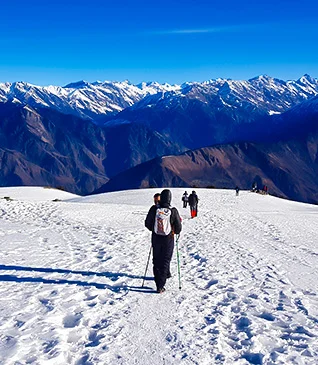
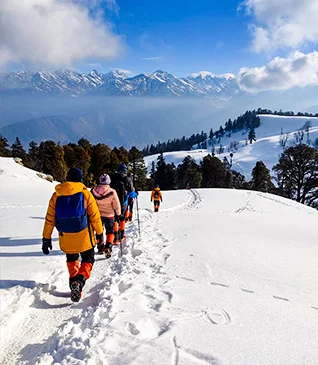



.webp)






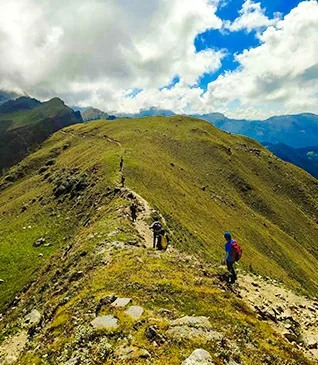
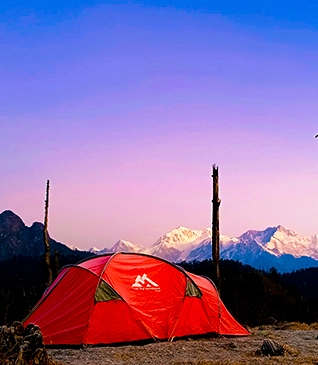
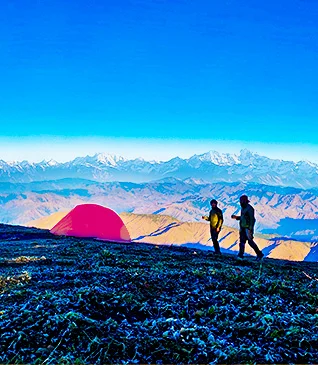
.webp)
.webp)


.webp)
.webp)
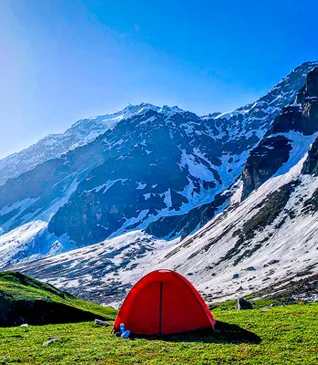
.webp)
